A sermon by Associate Minister Elsa A. Peters, January 9, 2011
Isaiah 42:1-9
:::::::::::::::::::::::::::::::::::::::::::::::::::::::::::::::::::::::::::::::::::::
These observations about the text have informed Elsa’s preaching. This is not a manuscript of the sermon though you can obtain a sound recording though the Church Office at 799-3361.
:::::::::::::::::::::::::::::::::::::::::::::::::::::::::::::::::::::::::::::::::::::
“Here is my servant,” the text begins. Here. As if everyone can plainly see who this servant is. But, no one can. Scholars continue to be puzzled by the possibility of who this servant might have been. Most scholars have come to agree that the servant referred to in these four servant songs (42:1-9, 49:1-6, 50:4-9, 52:13-53:12) in Second Isaiah (chapters 40-55) is in fact an actual historical figure, maybe even the prophet himself. According to John C. Holbert, these four songs articulate how this servant “whom Isaiah believes is already present among the people in exile or who may be soon on his way” will bring justice. More than that, this servant will bring justice without drawing any attention unto himself.
That’s not what Cyrus the Persian did even if Second Isaiah infers that Cyrus is the servant in 45:1. In all of the Jewish longing and hoping for return to Jerusalem, Cyrus, the ruler of nearby kingdom, had emerged as a powerful force that might become heir of Babylon. Without any warfare, Cyrus manages to remove the Babylonian king and announces all captives (including the Jews) could go home. The problem is that Cyrus failed to exhibit any of the attributes described in 42:2-4 so that the servant’s identity remains unknown. Still, other scholars believe that verses 6 and 7 reveal that the servant isn’t one person but the whole people of Israel. Indeed, this makes sense with repeated references of Second Isaiah to “my chosen” in reference to Israel (42:1, 43:20 and 45:4).
This has always been God’s greatest concern. God has tried again and again to reach into the human world to establish a covenant. As the prophet illustrates, God has always been actively engaged to attempting to take us by the hand and keep us. The “chosen” didn’t do anything to deserve this companionship. The “chosen” may not have created justice yet. That’s not what matters. They have been chosen because they are loved. They are the ones that make God’s “soul delight.”
Still, as I read this text, I don’t think that responsibility rests upon one person – historical or otherwise. We’re reading this text on Baptism of the Christ Sunday when we recall how a ritual action changed the whole of human history. Historically, it’s unlikely that this is the exact day that Jesus waded into the Jordan River but this is the day that we remember that event. Moreover, this is the day that we remember how and when that ritual action changed our own lives. Today, we remember how some pastor in some church in Northern Maine or Massachusetts or New York poured water upon our heads and said, in the comforting spirit of Second Isaiah,
Here is my servant, whom I uphold, my chosen, in whom my soul delights; I have put my spirit upon [you]; [you] will bring forth justice to the nations.
You might not think of yourself as one that doesn’t cry or lift her voice. You might not think you can walk tenderly enough not to break the bruised reeds. You may even insist that you’ve grown faint and feel crushed by the world around you. Indeed, we can get lost in the chosen language. But, the point of this pericope whether you’re reading it as a Christian or a Jew is: “God chooses particular human beings or particular peoples to carry out the divine will” – and in no uncertain term, that divine will is justice. You will bring forth justice to the nations. I don’t think that Christians digest this easily. We tend to think that it’s done for us. We follow the one that came to be the “light to the nations” so that we’re not totally sure how to continue that work. But, to really understand this text and understand what it is that we’re committing ourselves to in baptism, it seems imperative to glimpse the world as our chosen sisters and brothers see it. To do so, I want to share a story that was shared with me on American Public Radio’s Speaking of Faith. The host Krista Tippett was interviewing a Jewish doctor who lives in her own exile with Crohns disease, but Dr. Rachel Naomi Remen was given a story that empowered her to bring forth justice to the nations. When she was a little girl, her mystic grandfather told her this story, as she narrates it:
In the beginning there was only the holy darkness … And then, in the course of history, at a moment in time, this world, the world of a thousand thousand things, emerged from the heart of the holy darkness as a great ray of light. And then, perhaps because this is a Jewish story, there was an accident, and the vessels containing the light of the world, the wholeness of the world, broke. And the wholeness of the world, the light of the world was scattered into a thousand thousand fragments of light, and they fell into all events and all people, where they remain deeply hidden until this very day.
Now, according to my grandfather, the whole human race is a response to this accident. We are here because we are born with the capacity to find the hidden light in all events and all people, to lift it up and make it visible once again and thereby to restore the innate wholeness of the world. It’s a very important story for our times. And this task is called tikkun olam in Hebrew. It’s the restoration of the world.
